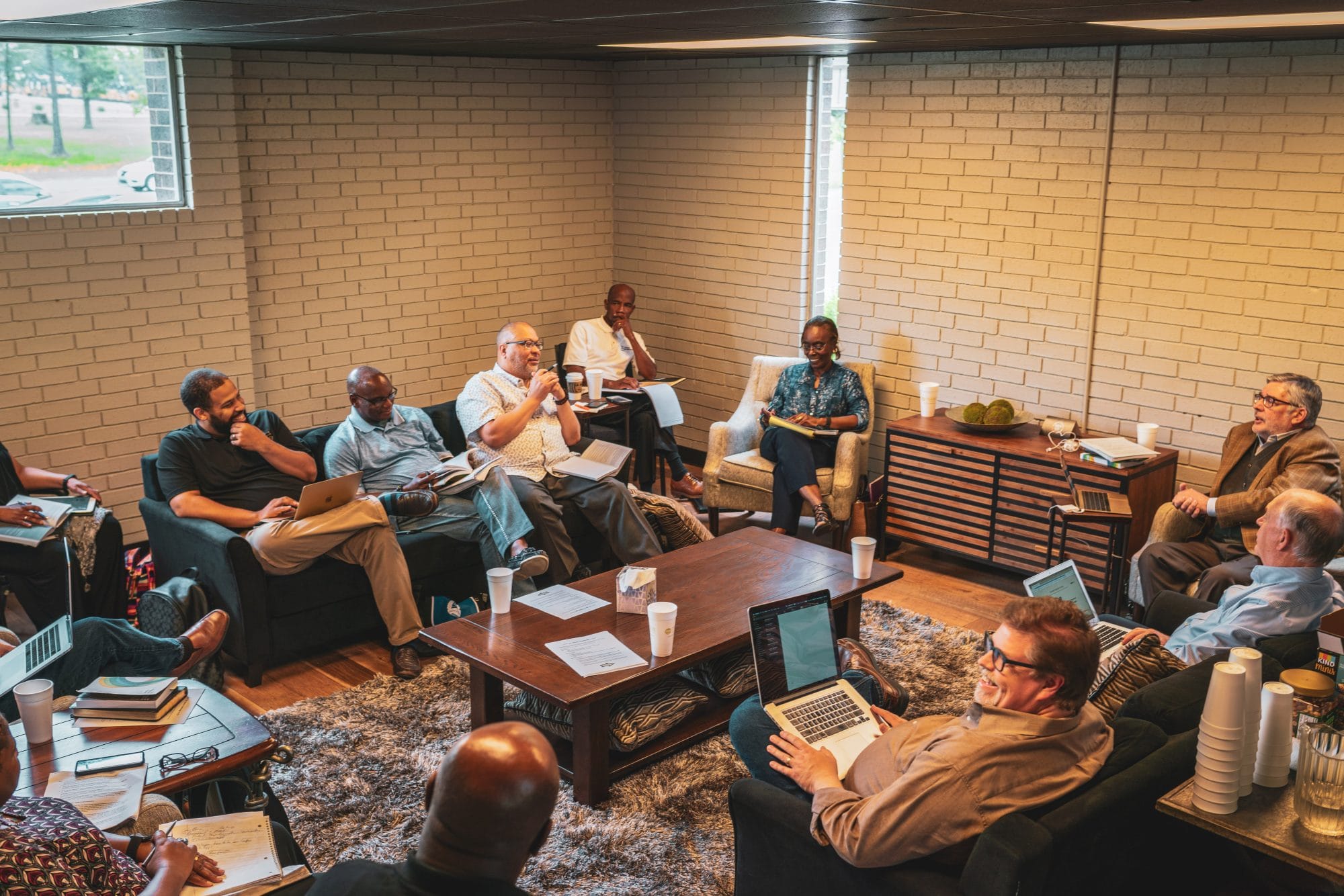Together: Equipped Leaders
If you were to name the greatest challenge our churches face today, what would you say? Lack of resources — funds, volunteers, programs, etc.? Polarization and division within the church and in society? The Church’s decreasing influence in the wider community? The increasing secularization of our culture? Politicians and lawmakers who promote policies and laws that aren’t consistent with a biblical worldview?
While each of these challenges is significant, the biggest challenge our churches face today is the lack of leaders who are equipped to train other leaders in the essentials of the Faith. Here’s how John C. Maxwell describes the problem:
The most critical problem facing the church today is the leadership vacuum that grew during the 20th century. Church expert and statistician George Barna asserts, “Leadership remains one of the glaring needs of the church. People are often willing to follow God’s vision, but too frequently they have no exposure to either vision or true leadership.” Just a few years ago, Barna penned some sobering conclusions based on his research: “After 15 years of digging into the world around me, I have reached several conclusions regarding the future of the Christian church in America. The central conclusion is that the American church is dying due to a lack of strong leadership. In this time of unprecedented opportunity and plentiful resources, the church is actually losing influence. The primary reason is the lack of leadership…Nothing is more important than leadership.”
Christ left his church on earth to do work that has an eternal impact. If the local church isn’t well led, then the bride of Christ suffers, and she will not be able to fulfill her mission for this generation.*
* John C. Maxwell, “The Bible is the Ultimate Book on Leadership,” Bible Gateway, link.
A Proven Pattern for Training Leaders
As the church goes in society so goes the entire society. When our churches are strong and healthy, the community benefits in ways that lead to flourishing. However, this is possible only if our churches are producing leaders who are equipped to effectively establish others in the core teachings of the Faith. Fortunately, Jesus and his Apostles gave us a proven pattern for this training. They led a movement in the first century that changed the world and the leadership model they left for us still has power today.
If we have the greatest possible training curriculum for leaders available to us, why aren’t churches more intentional about equipping their leaders? Perhaps there are a multitude of reasons but what is evident today is that many leaders in the church lack the theological knowledge and leadership skill to deal with the mounting challenges faced by our churches and their people. As a result, many churches have yet to experience the value of a serious, ordered approach that produces trained leaders who are equipped to train other leaders.
Sobering Results
A 2020 study** on discipleship in U.S. churches by Discipleship.org and Exponential has revealed areas of concern in how churches understand disciple-making and engage in it.
Here are a few observations from the study:
- Fewer than 5% of churches in the U.S. have a reproducing disciple-making culture – we champion and celebrate these churches. They are a model for other churches. But, at the same time, in light of the truth that disciple-making is the core mission of the church, the study found a disappointingly low percentage of churches with a culture of and strategy for reproducing disciples and disciple-makers.
- An absence of churches reflecting viral-like disciple-making movements – we did not find clear examples of disciple-making movements (DMM) in the U.S. Stated differently, we did not find in the established churches that were interviewed disciple-making movement churches.
- Lack of commonly understood definitions – there is not a clear, compelling and commonly understood set of basic definitions for terms such as discipleship, disciple, and disciple-making.
- Overestimating Impact – pastors are overly optimistic in their assessment of the disciple-making cultures present in their churches, and frequently overrate their effectiveness in discipleship and disciple-making.
Putting Discipleship Back at the Center
Despite what the data reveal about the current state of leadership in our churches, there is hope. In The Other Half of Church (Moody: 2020), Jim Wilder and Michel Hendricks signal the urgent need for leaders to fulfill both parts of the Great Commission (Matthew 28:18-20) as championed by Dallas Willard:
Willard believed that spiritual formation is the central task of the local congregation, the primary responsibility that Jesus gave Christian leaders. Our job as pastors, first and foremost, is to build the character of Jesus into people’s lives. We focus on changing people on the inside. Since our inner character transformation drives everything else we do, discipleship must be central.
Unfortunately, when he looked at churches, he noted a pattern of neglect. Spiritual formation was pushed to the side by leaders who focused on other priorities and projects. When this happened, character formation became ineffective, watered down, or dropped altogether.
When he looked at the Great Commission and then looked how churches were trying to fulfill it, Willard concluded that most were focused on the first step and ignored or watered down the second step. Churches were trying to reach lost people with the good news of Jesus. Once people were saved, they were left in permanent spiritual kindergarten without a path to maturity.
Willard urged churches to create a “curriculum for Christlikeness,” a well-designed, intently pursued path to maturity. Everyone in a Christian community should receive robust discipleship training. He encouraged readers to ask their pastors something like, “What is your plan for teaching our people to do everything Christ commanded?”
Every group that takes its purpose seriously trains their people. The military uses basic training that incoming civilians must endure in order to become soldiers. Every professional sports team has a specific and rigorous training program to turn amateurs into professional athletes. Most churches have no such program; this is “the great omission.” **
** Jim Wilder and Michel Hendricks, The Other Half of Church: Christian Community, Brain Science, and Overcoming Spiritual Stagnation (Chicago: Moody, 2020), 37-39.
A Multiplying Movement of Trained Leaders
If you want to see your church grow to be strong and healthy, a serious and ordered plan for equipping leaders in your church is not optional. It is essential because it fulfills Jesus’ greatest and highest command to his disciples. Thankfully, Jesus and his Apostles have provided a biblical, intentional and proven way to train leaders and their model allows churches to grow and bear fruit that leads to flourishing.
When the churches in our cities unite together to follow the way of Jesus and his Apostles in training leaders, our churches will grow and their leaders will be better equipped as disciple-makers to …
- Discern and cast vision
- Fully establish believers in the faith
- Respond more effectively to the biggest challenges in our community
- Bridge differences and work with others for the welfare of our cities
At CityChurch Network we have a 2023 goal to equip 200 leaders within our network who are prepared to train other leaders in the essentials of the faith. We desire to see leader fruit and multiplication. We long to see a multiplying movement of trained leaders in our cities that leads to flourishing. Our prayer is that this movement spreads among leaders in our churches and beyond into the homes, neighborhoods, workplaces, schools and public squares of our communities.
Together we can build a flourishing community filled with leaders who are equipped to train leaders.


